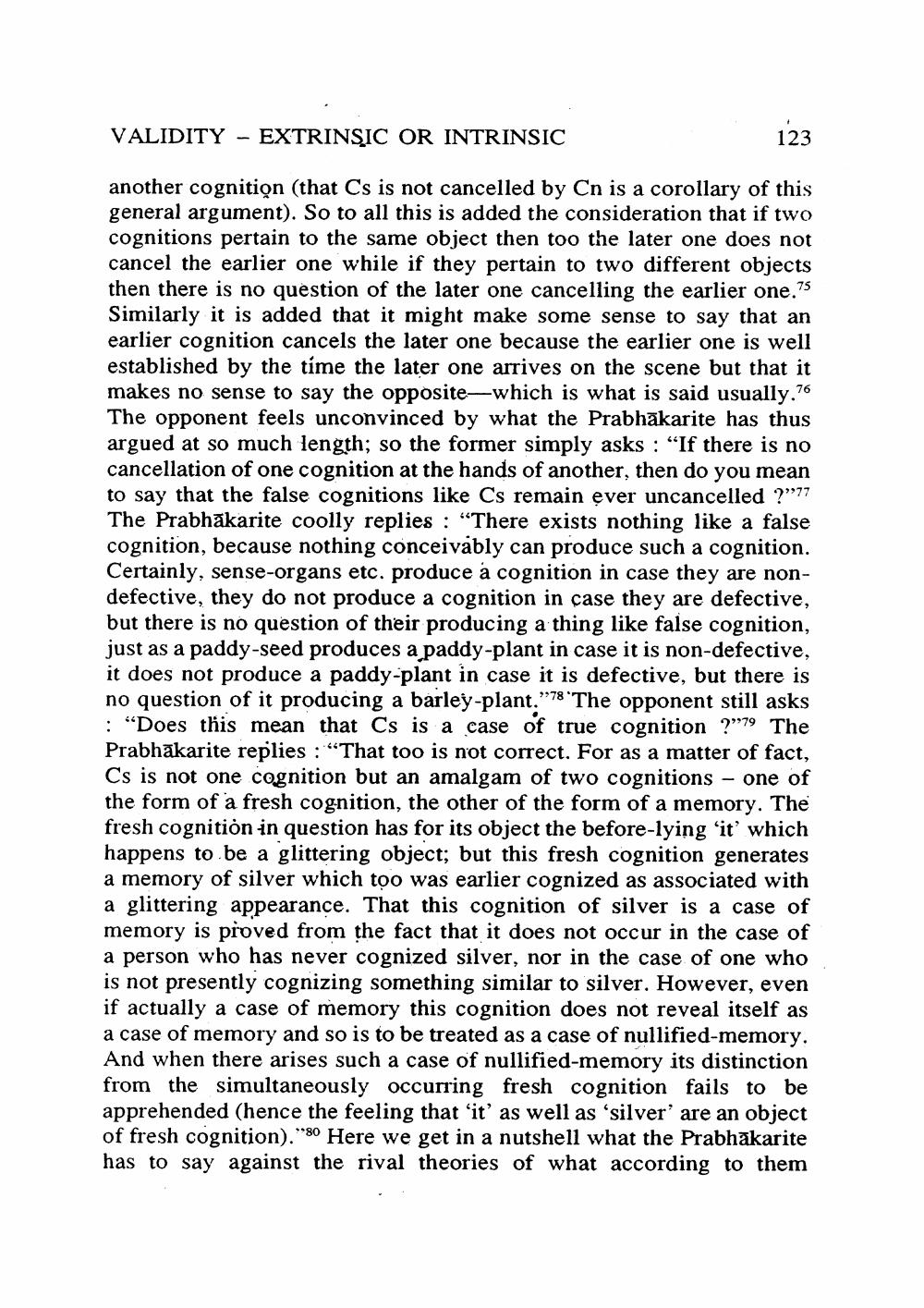________________
VALIDITY - EXTRINSIC OR INTRINSIC
123
another cognition (that Cs is not cancelled by Cn is a corollary of this general argument). So to all this is added the consideration that if two cognitions pertain to the same object then too the later one does not cancel the earlier one while if they pertain to two different objects then there is no question of the later one cancelling the earlier one.75 Similarly it is added that it might make some sense to say that an earlier cognition cancels the later one because the earlier one is well established by the time the later one arrives on the scene but that it makes no sense to say the opposite—which is what is said usually.76 The opponent feels unconvinced by what the Prabhākarite has thus argued at so much length; so the former simply asks : “If there is no cancellation of one cognition at the hands of another, then do you mean to say that the false cognitions like Cs remain ever uncancelled ?"77 The Prabhākarite coolly replies : “There exists nothing like a false cognition, because nothing conceivably can produce such a cognition. Certainly, sense-organs etc. produce a cognition in case they are nondefective, they do not produce a cognition in case they are defective, but there is no question of their producing a thing like false cognition, just as a paddy-seed produces a paddy-plant in case it is non-defective, it does not produce a paddy-plant in case it is defective, but there is no question of it producing a barley-plant."78 The opponent still asks : “Does this mean that Cs is a case of true cognition ?"79 The Prabhakarite replies : “That too is not correct. For as a matter of fact, Cs is not one cognition but an amalgam of two cognitions - one of the form of a fresh cognition, the other of the form of a memory. The fresh cognition in question has for its object the before-lying “it' which happens to be a glittering object; but this fresh cognition generates a memory of silver which too was earlier cognized as associated with a glittering appearance. That this cognition of silver is a case of memory is proved from the fact that it does not occur in the case of a person who has never cognized silver, nor in the case of one who is not presently cognizing something similar to silver. However, even if actually a case of memory this cognition does not reveal itself as a case of memory and so is to be treated as a case of nullified-memory. And when there arises such a case of nullified-memory its distinction from the simultaneously occurring fresh cognition fails to be apprehended (hence the feeling that 'it' as well as 'silver' are an object of fresh cognition).**80 Here we get in a nutshell what the Prabhakarite has to say against the rival theories of what according to them




